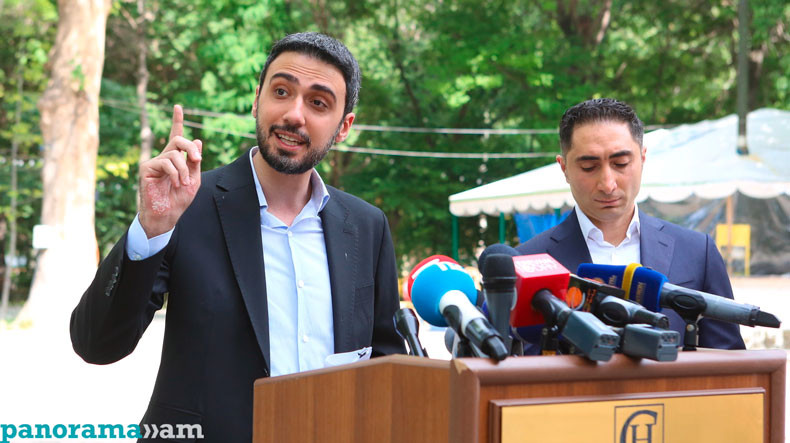
Our positions were reflected in ECHR’s advisory opinion, says Kocharyan’s lawyer
Aram Vardevanyan, a lawyer of former Armenian President Robert Kocharyan, reacted on Friday to the advisory opinion delivered by the European Court of Human Rights (ECHR) on the ex-president’s cases requested by the Constitutional Court of Armenia.
Speaking at a briefing, the lawyer said many of the defense team’s positions and assertions were reflected in the court’s advisory opinion.
Vardevanyan called attention to the fact that the European court did not comment on the first two questions put by the Armenia’s top court.
“Such wordings should be avoided, as the first and second questions refer to the requirements of the principle of legal certainty. The European Court of Human Rights referred to it in the final part of Point 3, that is, those questions did not remain unanswered,” the lawyer said.
The lawyer also touched upon the “blanket norm” term used in the advisory opinion.
“A blanket norm is any norm that is not in the Criminal Code, but in another document. For example, Article 300.1 of the Criminal Code is a blanket norm, the main provisions of which are in the Constitution. What did ECHR mean? The European court made it very clear, as we had repeatedly stated, that a blanket norm can be applicable and lawful if it is clear and forseeable enough,” Vardevanyan said, noting that there are no requirements for certainty and foreseeability in case of Article 300.1.
According to him, ECHR made another important reference, noting that the scope of an offence must be clear.
“Article 300.1 does not meet this requirement as well; we can say that this is one of the new circumstances of the ECHR's advisory opinion which we will use. Therefore, in this case, when we talk about the requirements of certainty and foreseeability of a norm, it should be noted that Article 300.1 does not meet them,” the lawyer said.
As for the retroactivity of the amendments to Article 300.1 of the Criminal Code, according to the lawyer, if the ECHR did not see a problem there, it would simply point out that there was no problem at all.
“ECHR does not have any problem at all in terms of the freedom of its positions. Whenever the court analyzes an issue with an extensive document as it’s the case here it means there is really a problem. If there had been no problem at all, ECHR would not have accepted it into proceedings. And what we have today is quite a useful decision, which specifically addresses retroactivity, noting that an act with aggravating circumstances cannot have a retroactive effect,” he said.
Related news
Newsfeed
Videos






























